The Automation of Metal Fabrication with Robots
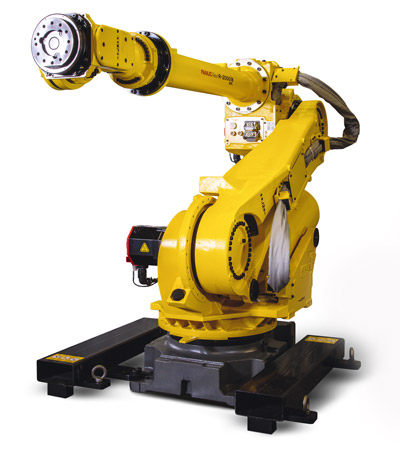
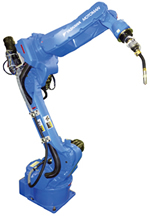
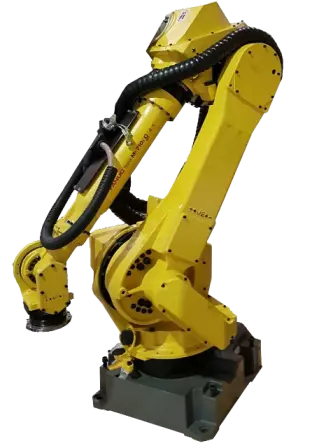
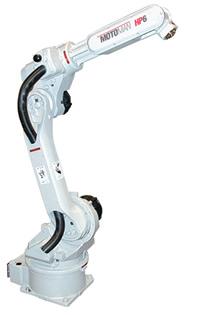
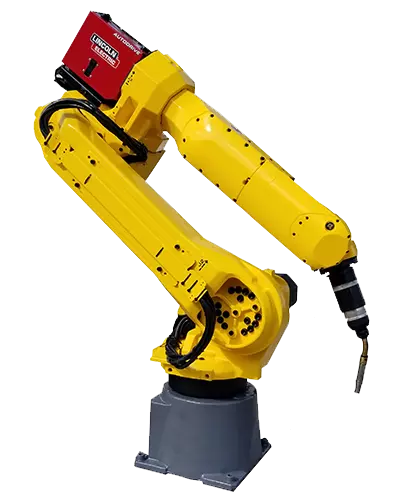
Fab shops both large and small are automating with industrial robots. The dangerous nature of metal fabrication along with staggering labor shortages and rising costs have caused the once automation hesitant metal fabricators to rapidly adopt industrial robots.
Metal Fabrication Applications for Robotic Automation
Robot manipulators can be used to automate an entire metal fabrication process from start to finish. Industrial robot arms can be implemented in fab shops to automate arc welding, spot welding, cutting, assembly, machine tending, material handling, material removal, and finishing applications. The multipurpose capabilities of the FANUC M-10ia allow it to automate several applications of a metal fabrication process. Instead of investing in machinery for each process within a metal fabrication operation, only a few articulated robots may be needed. Industrial robots can also automate quality control processes such as inspection. Integrating the FANUC LR Mate 200id with a robotic vision system allows it to thoroughly inspect workpieces ensuring defects are caught prior to finishing. Automating metal fabrication with six axis robots will significantly reduce the amount of manual labor a fab shop relies on.Industries Automating Metal Fabrication with Robots
There are several industries that are adopting metal fabrication robots. It comes as no surprise that the automotive industry is one of those. The automotive sector was the first to implement robotic automation and remains one of the largest users of factory robots today. Fabrication robots are used to weld car frames, assemble vehicle components, and develop prototypes. The ABB 6640 is ideal for the handling of large metal workpieces which is common in the automotive industry.The aerospace industry is another industry that deals with large metal components. Aerospace parts also require precision and durability which can be achieved with robotic automation. Aerospace manufacturers are realizing the best way to guarantee quality and safety is by automating with the Yaskawa MH180 and other handling robots. Other industries automating with metal fabrication robotic manipulators include the agriculture, energy, medical device, construction, and defense industries.
Benefits of Metal Fabrication Robots
One of the top benefits of automating metal fabrication with robots is a safer operation. Metal fabrication involves numerous hazards to workers such as hot metals, fumes, heavy workpieces, and repetitive lifting. Automating with the FANUC Arcmate 120ic eliminates these hazards for workers, significantly reducing the likelihood of work related accidents and injuries.Another benefit of automating metal fabrication with robots is it will reduce the amount of equipment and workers needed. One ABB 2400 can automate several applications within a metal fabrication process. Fab shops become streamlined with less equipment and workers, reducing overhead. Metal fabrication becomes more cost-effective with robotic automation. Metal fabrication robots also allow for higher output capabilities. Manufacturing robot arms increase productivity with their fast operation speeds, long run times, and mitigation of errors. Fab shops are no longer restricted by how much labor they have available. Industrial robotic arms not only allow for higher output but they also allow for growth as they are scaleable. As business grows, robots can accommodate higher productivity requirements to keep up with the higher demand. Metal fabrication robots allow your business to grow without necessarily having to invest in additional equipment and personnel.
Robots Done Right is the place to start when it comes to used robots. Contact us if you are interested in buying or selling a used robot.